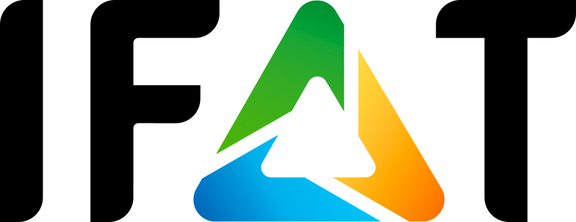IWMSA aligns with IFAT Africa to support industry collaboration
February 11, 2019
Waste management stakeholders must work together to avert looming waste crisis, say IFAT Africa, IWMSA
The Institute of Waste Management of Southern Africa (IWMSA) has signed a Memorandum of Understanding with Messe Muenchen South Africa, organisers of IFAT Africa, to collaborate on the 2019 exhibition and conference.
IFAT Africa is the leading environmental technology trade fair in sub-Saharan Africa, focused on water, sewage, refuse and recycling. In 2019, the event will be co-located with food & drink technology (fdt) Africa and analytica Lab Africa, to bring stakeholders from across the water and waste value chain together into a single event in Johannesburg from July 9-11 this year at the Gallagher Convention Centre.
IWMSA President Leon Grobbelaar says this collaboration with IFAT Africa is in line with IWMSA’s new strategy to expand its collaborative efforts across the industry. “The Institute is exploring opportunities as a new country member of the International Solid Waste Association (ISWA), which is in line with our stated goals to reach out and engage more stakeholders to address South Africa’s waste challenges,” he says.
As part of IWMSA’s participation in IFAT Africa 2019, ISWA is planning an inaugural launch event together with IWMSA, where IWMSA members will have the opportunity to meet some of the ISWA team and experts. IWMSA will also offer waste master classes at IFAT Africa, covering key issues in waste management today. “We have approached leading academic institutions to collaborate with us in delivering master classes on topical issues such as landfill air space, waste to energy and the need for public-private partnerships to overcome the waste crisis,” says Grobbelaar.
He believes that IFAT Africa’s co-location with fdt Africa and analytica Lab Africa are important steps in bringing together the entire value chain to share knowledge and find solutions to the growing waste problem. “While South Africa has excellent waste legislation in place, enforcement mechanisms are not in place. Major metros are running out of landfill space, and we are years away from opening the first large scale waste to energy projects in metro areas such as Gauteng. Finding solutions to these challenges means everyone in the industry must work together with the authorities to discuss concrete implementation plans, and consider ways to drive investment into new waste projects. A forum such as IFAT Africa presents a good opportunity for stakeholders to do this,” he says. “We also hope to see regulators coming to IFAT to talk to the industry on future collaboration.”
In addition, Grobbelaar notes that IFAT Africa’s pan-African focus will give local stakeholders an opportunity to learn from progress across the continent. “Some African countries are far ahead of South Africa in terms of waste projects,” he says. “Ghana, for example, has made significant progress in the past ten years – mostly through public-private partnerships.”
International participation will bring the best new models and technologies to South Africa, he adds. “There are many opportunities for local stakeholders and entrepreneurs to move into fields such as recycling and waste to energy,” says Grobbelaar.
Suzette Scheepers, CEO of Messe Muenchen South Africa says the collaboration with the IWMSA is expected to further enhance the broad reach of the exhibition and conference, bringing together key international and local stakeholders for a unique knowledge sharing opportunity.
“As an established trade and business event for the water and waste management sector, IFAT welcomes this new collaboration, which makes the event ever more representative of the entire industry. We believe that by working together with IWMSA, we can further unite the industry in constructive debate to overcome challenges and address opportunities,” says Scheepers.
